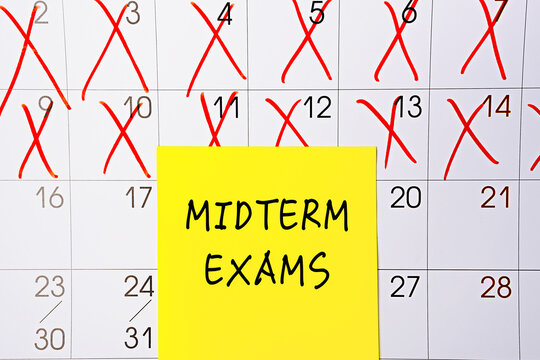
Amongst this joyous yet stressful season, intertwined with the hopeful wishes of a new bicycle and the looming threat of midterm evaluations, students often experience a crushing pressure to finish the year off well. I am no exception to this phenomenon. In fact, I am writing this article the weekend before the daunting midterm exams in hopes that the next week will go by quickly. Often during the liminal space between examinations and the holidays, I wonder if I should be excited or stressed. While it’s true that the semester is almost over, if I happen to slack off before examinations, I won’t be able to have a restful break. Almost every year I’ve found myself cramming before midterms just to forget everything over the break. I’ve wondered if this method really serves me well or if it just keeps me above the water. Fear not, kind reader, I’ve since learned how to cope with these trying times.
Take it day by day. Often when I think about winter break or where I want to go on vacation, I leave the present moment and fantasize about a time without pressure from school. This form of escapism, I’ve found, is unhealthy. At that moment, my priorities aren’t what they should be. This goes both ways. When I’m on break and I think about the upcoming AP exams, I can’t fully rest because I’m thinking about how unprepared I am. What I’m saying is that mindset is an integral part of succeeding in unideal situations. This is not to say that I succeed in achieving this mindset but that I’ve learned that not setting my priorities properly has not done me any good.
Learn, don’t memorize. I’ve found it really hard to actually learn material when I’ve overloaded myself with a lot of different classes, so I often resort to memorization. Even now, I rely on memorization because of a fear of not being able to keep up with the material quickly enough, so I can’t exactly explain how to go about this tip. However, from my two and a half years of high school experience, I can confidently say that the information I still remember from my freshman and sophomore years is from courses I actually put effort into learning. In those classes, I would try to comprehend not just my notes but how the information fits into a larger context. For example, in European History, a class that includes a vast compendium of obscure details and dates, I would prepare for the exam by making connections between the events and cause-and-effect relationships. At first, I relied on the memorization system that got me through middle school and freshman year, but I quickly learned that to actually pass the class I would have to learn the material and reflect on its significance in relation to the greater context of history itself. Unfortunately, I didn’t realize this until after my midterm exams, which leads me to my next point.
Don’t evaluate your progress based on your grades. There are too many confounding variables for grades to actually evaluate your progress. Sometimes, I get lucky and score higher than I thought I should have, and other times I make mistakes that add up, resulting in a lower score. At times, I’ve associated my self-worth with my grades, which never ended well. Ultimately, what I’ve learned is that these examinations are a time for you to prove that you understand everything you’ve been learning the past few months, not to determine your value. While this makes it difficult to take exams for classes you never wanted to take in the first place, I think realizing this made facing these examinations easier. If I didn’t prepare well enough or I genuinely could not comprehend the material, it’s only fair I score lower. In the end, however, I think not letting the grade I receive determine how I treat myself helped me move on and keep learning.
With that, I wish you luck. Happy exam season!

